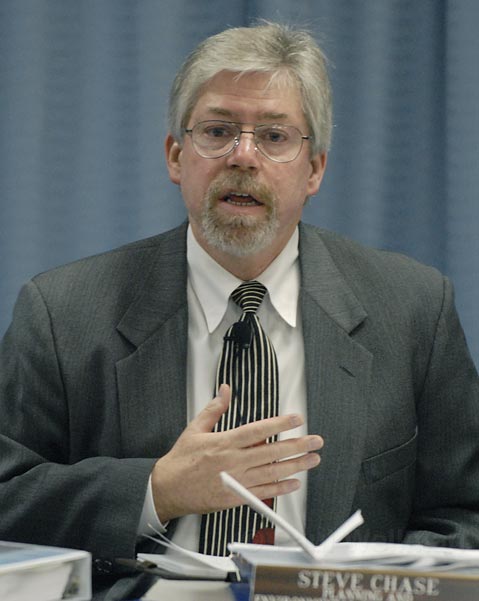If there is one word that can be used to describe the Goleta General Plan update process, it’s “confusing.” With many elements already addressed by the city’s Planning Commission and City Council, amendments to Track 3 of the General Plan- described by planning staff members as the plan’s overarching philosophy, or how the city will be shaped over the next 20 years-finally went before the council Tuesday to undergo review and receive public comment. Updates to Tracks 1, 2, and 2.5 of the General Plan, which have already been approved by the council, dealt with housing, minor revisions to the plan, and building standards, respectively. Track 3 has been one of the most contentious facets of the update process, mainly because members of the public have been able to actually discern its meaning. Tracks 4 and 5 deal with specific projects-such as Bacara Resort & Spa’s plan to build 62 hotel condominium units close to the existing hotel-as well as the city’s sphere of influence which, says planning staff, will continue to change indefinitely.

Based upon public response at Tuesday’s City Council meeting, the hot-ticket items in Track 3 were creek and wetland setbacks and the city’s growth control ordinance. Over the past several months, the Goleta Planning Commission has dedicated exhaustive amounts of time and staff effort to wrangling through the minute details of Track 3, with public meetings that often lasted several hours. Steve Chase, director of Planning and Environmental Services, said his staff’s suggested changes reflected a balance between community needs and protection of natural resources, highlighting the significance of Goleta’s location between the more urban City of Santa Barbara and the bucolic hills, coastal plateau, and mountain peaks of the Gaviota Coast. “Goleta is the transition from urban to open space,” he said, suggesting that buffers between development projects and creeks and wetlands, among other parameters, should be more flexible than in the original iteration of the General Plan. With the proposed amendments, setback reductions could be evaluated on a case-by-case basis.
In general, commentary offered by the public fell into two camps: The usual suspects from neighborhood preservation and environmental conservation groups showed support for strong protections against overdevelopment. Business owners were more interested in the flexibility offered by examining each project on a case-by-case basis. “To protect [Goleta’s open space and natural areas], we need firm, consistent safeguards,” said Scott Cooper, who teaches an ecology class at UCSB. Eddie Harris, president of the Urban Creeks Council, called for a more detailed analysis of the creek setback guidelines. “Watershed planning should be comprehensive, analytical, and citizen-based, not arbitrary and developer-driven as this process is,” he said, echoing the concerns voiced by some that the General Plan amendments are adulterations of the document’s original, protective intent.
While most business owners were supportive of the recommendations made by the Planning Commission staff, Bacara representative Richard Monk said that the changes on the table at Tuesday’s meeting were different from the ones proposed in 2007 and 2008. “The staff report presents only the language recommended by the environmental consultants, and does not present the language that the council actually initiated,” he said. “If [these changes] are adopted, [Bacara’s] completion phase will be impossible to build.” Further discussion by the City Council indicated that, by law, the difference between mitigated (manmade) and naturally occurring environmentally sensitive habitat area (ESHA) cannot be distinguished, according to the Coastal Act, when dealing with potential development projects. Although the Track 3 finding could jeopardize the resort’s planned hotel condominium development, Bacara will have a chance to bring the project before the council again with project-specific Track 4 amendments.
The council approved most of the Planning Commission’s recommendations Tuesday and will continue with the remainder at its next meeting on November 17.



